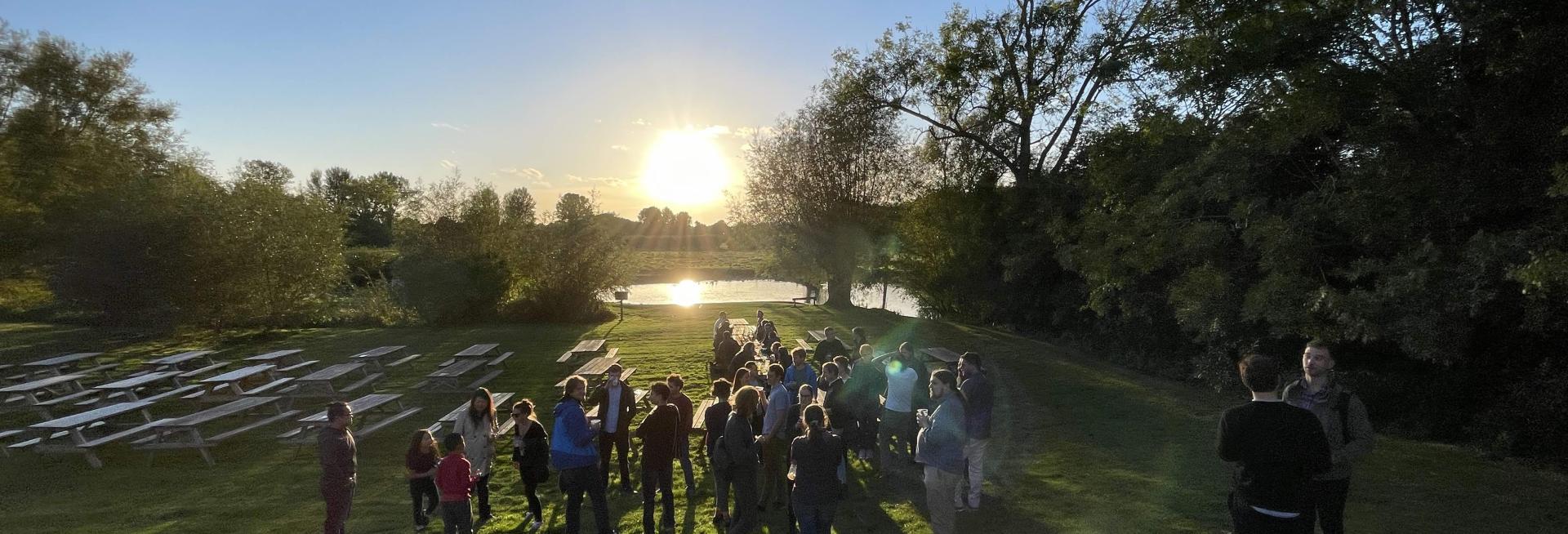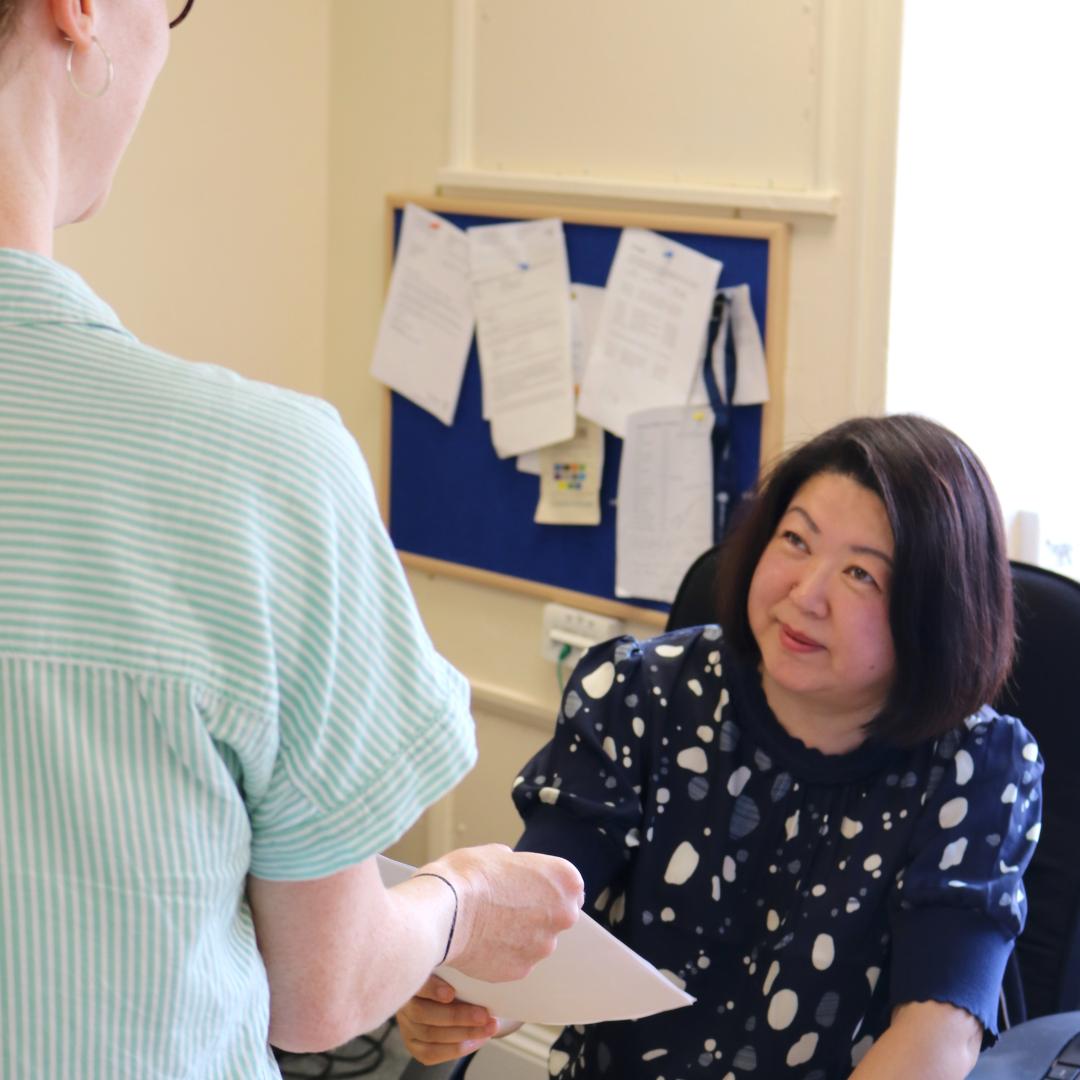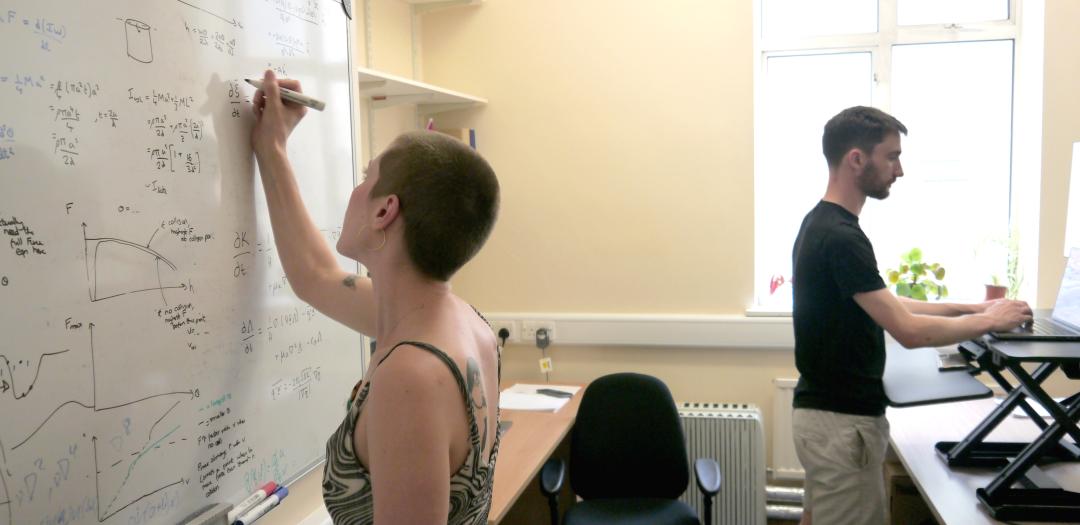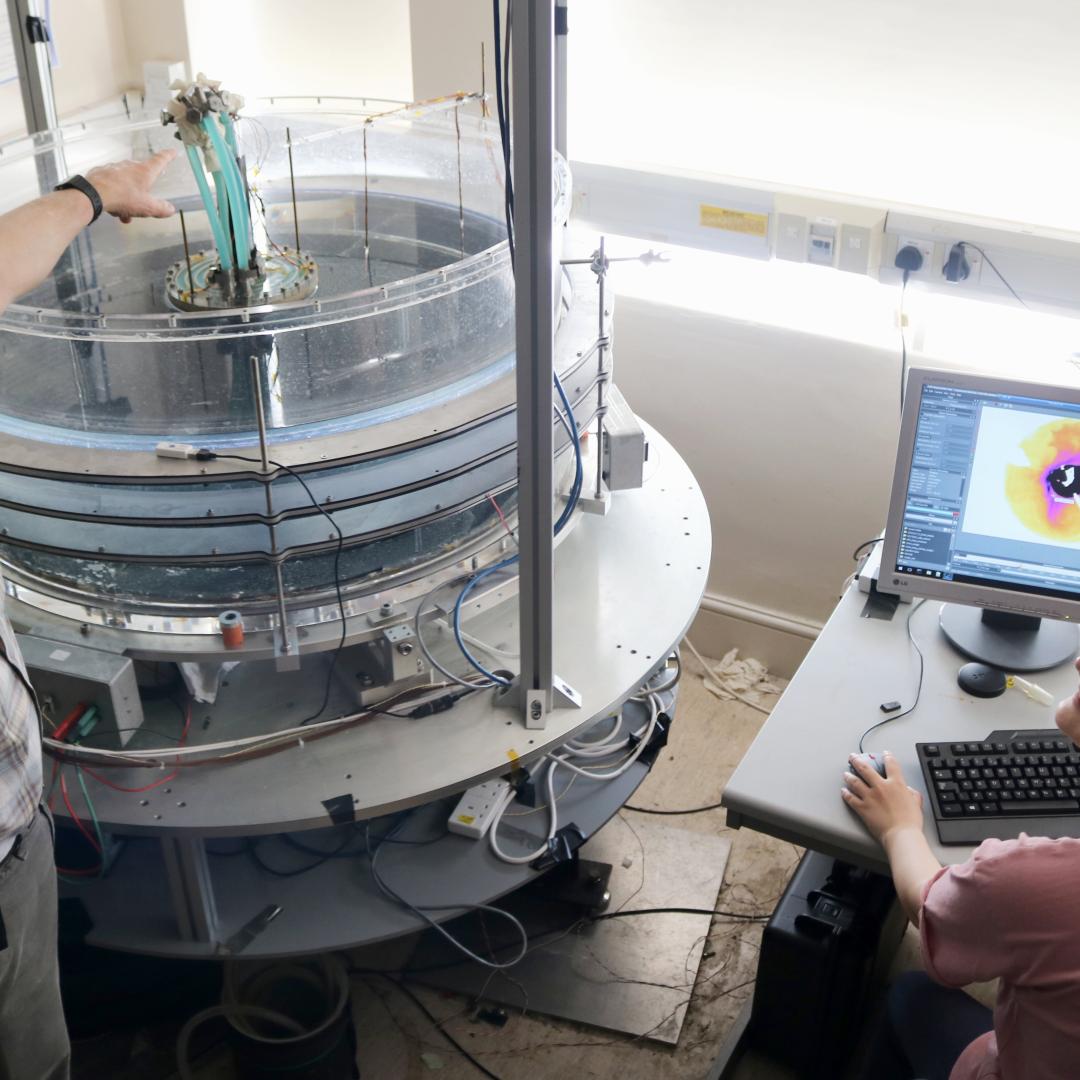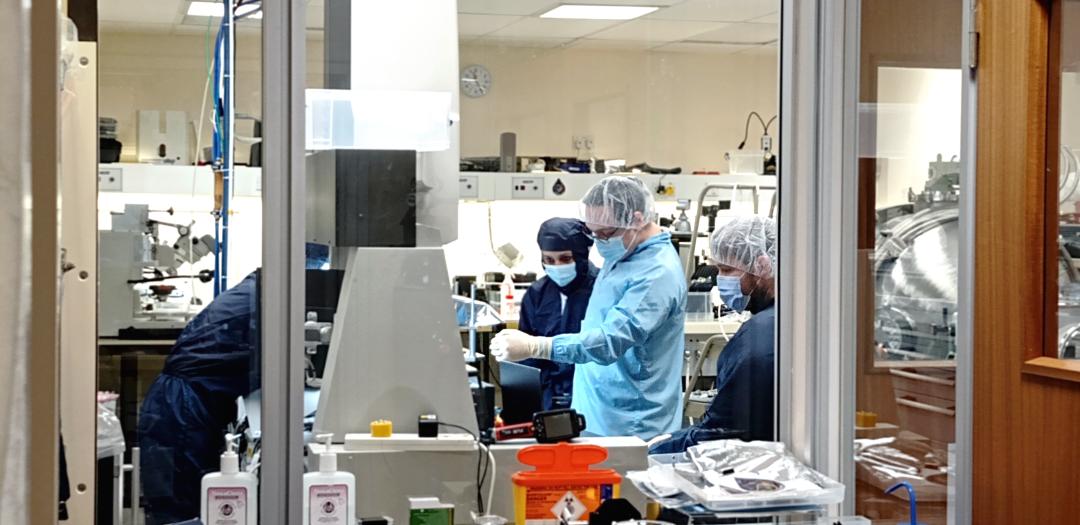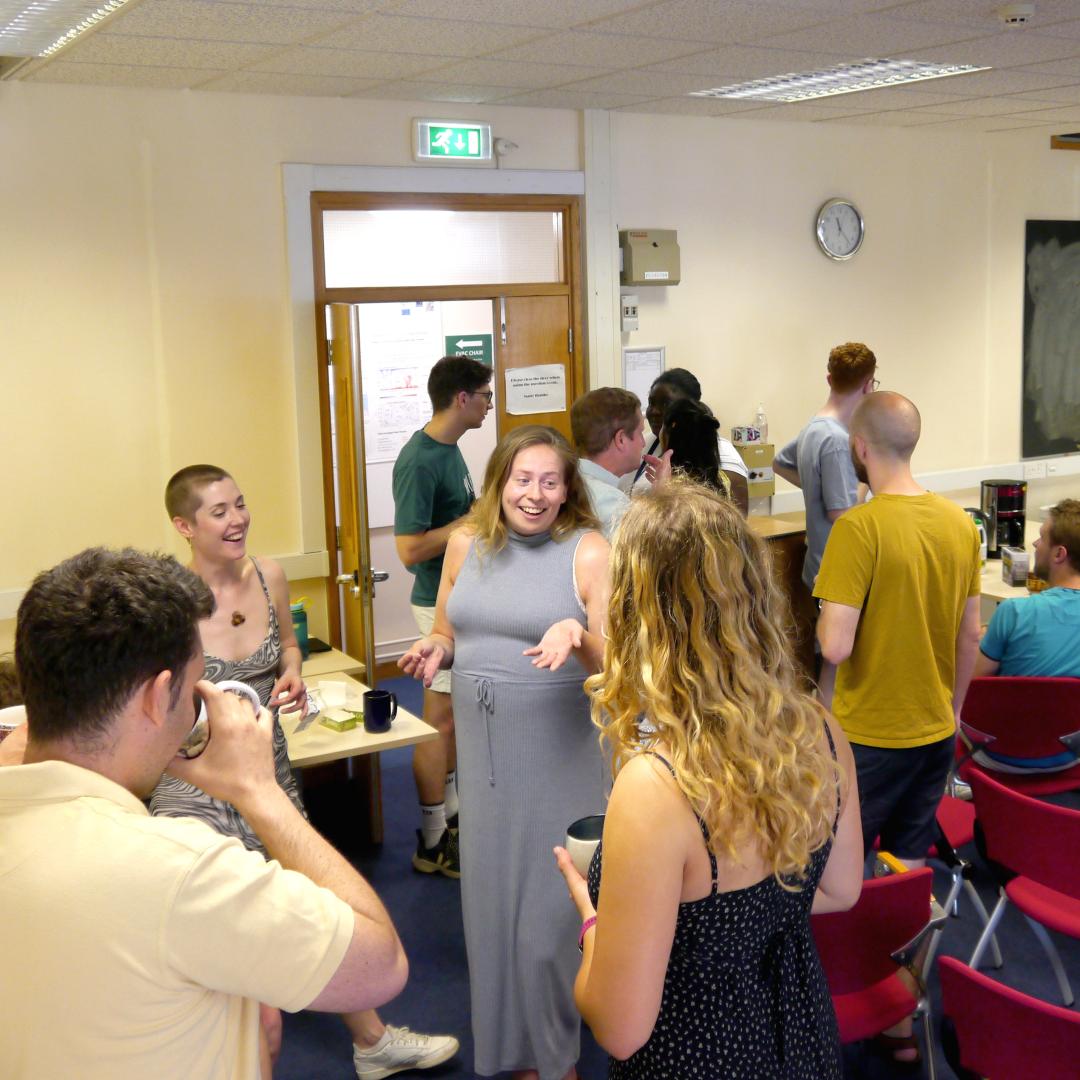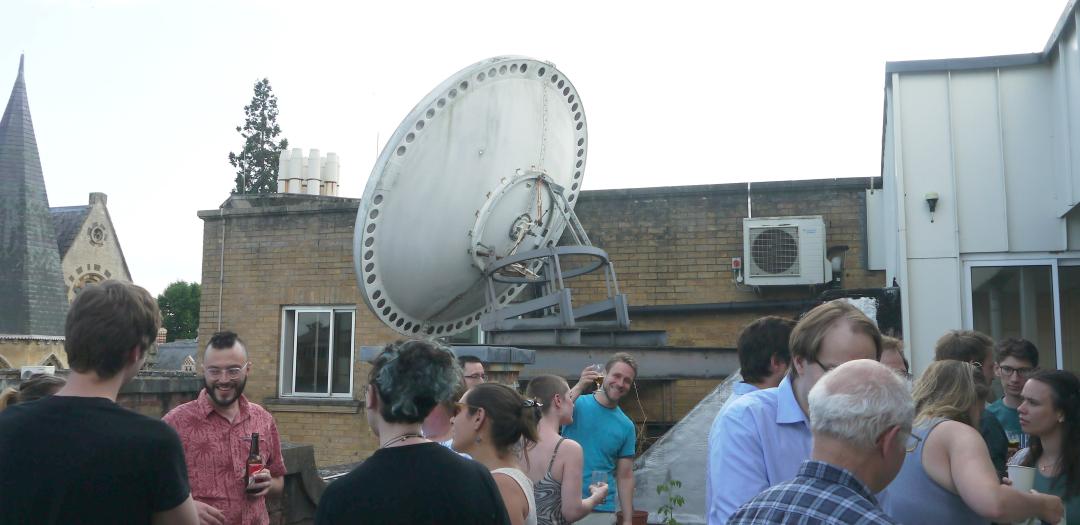Location and offices
AOPP is located five minutes from Oxford’s historic city centre and is next to leafy University Parks, the perfect place for an afternoon stroll by the river Cherwell. The department is also a short walk from the picturesque Jericho neighbourhood, with plenty of cafés and delis to sate your mid-paper-writing hunger pangs.
Most of the AOPP building is split into small offices, usually shared between colleagues with common research interests. Researchers are supported by a team of administrative staff, project managers, IT experts and maintenance workers who facilitate the department’s world-class research. Many day-to-day problems can be solved with a quick email or visit to Lucy, AOPP’s admin manager, whose friendly advice helps to make the department welcoming.
Research
Although much of the research at AOPP relies on our high-performance computing facilities, in the heart of the department you can find our laboratories where pioneering experimental work takes place. This ranges from building instruments that will orbit the Moon to studying atmospheric turbulence in the rotating fluids tank.
Seminars
On Thursdays during term time, invited speakers from across the world give seminars in the Dobson Room. These provide opportunities to hear from, and foster collaborations with, leading experts in your field, or just to broaden your knowledge of Earth and planetary physics outside your specific niche. In between terms we host an internal “Research Reports” series, where members of the department can present their research in a friendly and informal environment.
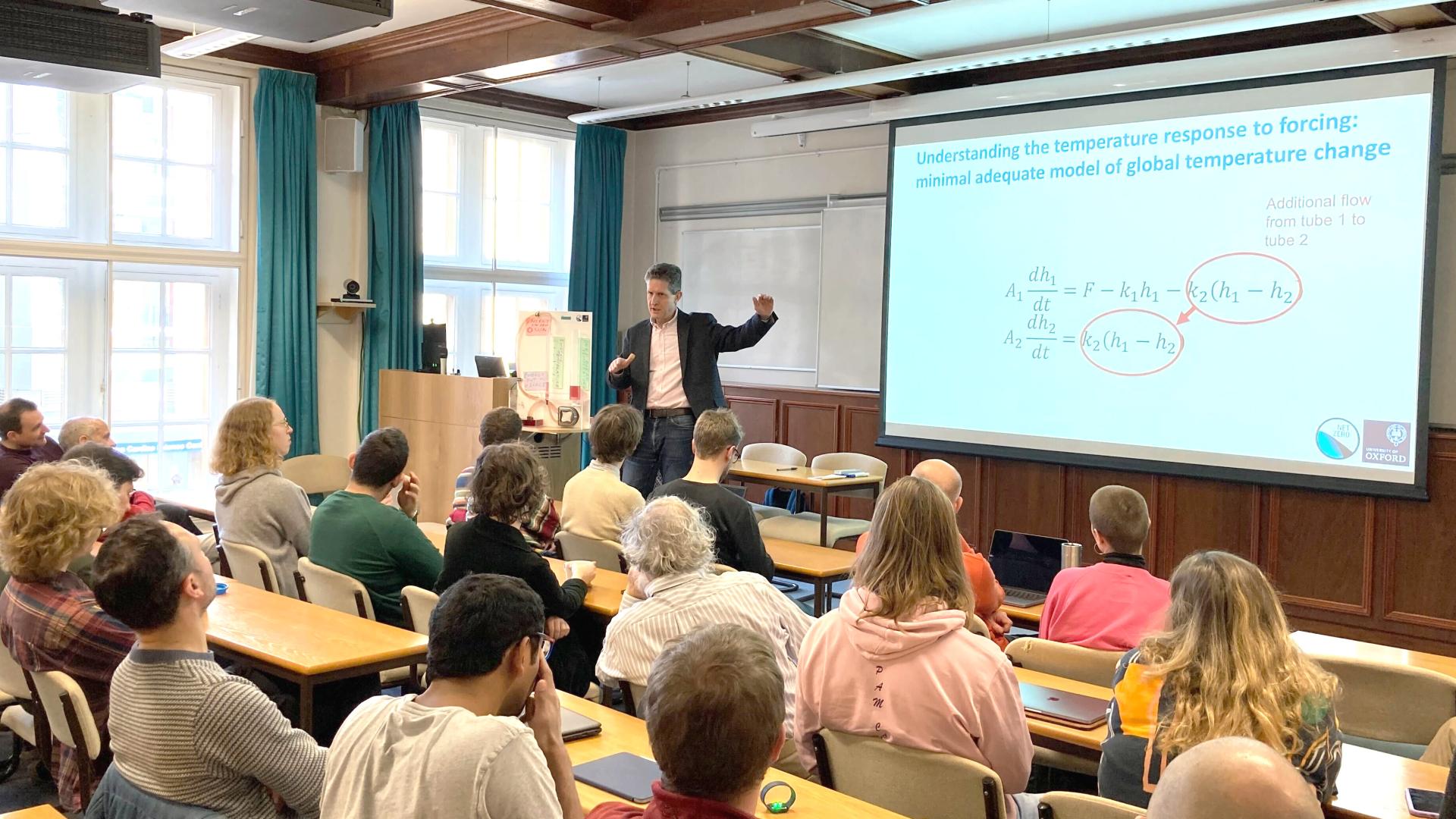
Socials
At the centre of AOPP’s social life is our daily morning coffee, where students, postdocs and faculty gather in the common room to discuss anything from cutting-edge science to (more often than not) the merits of the various biscuits on offer that day.
Every month also sees AOPP Happy Hour hosted on the department’s balcony. Here colleagues relax over free post-work drinks and nibbles, set against the backdrop of sunset over Oxford’s dreaming spires.
Each September the department comes together for the ‘AOPP retreat’. This two-day event provides a forum for discussions about research as well as topics such as wellbeing and EDI. It also includes welcoming new department members, celebrating the successes of the past year and social activities such as punting.
Mental health support
Several members of AOPP faculty are ‘Physics Thrive’ mentors and offer support relating to wellbeing, career progression and EDI issues. There are also often PhD students who are trained peer supporters. The physics department also has a number of trained mental health first aiders.
Academic Support
Most research groups have weekly meetings, often revolving around a member of the group presenting their preliminary work or a recent paper of interest.
PhD students at AOPP can expect regular meetings with their academic supervisors to discuss their progress. The department’s Director of Graduate Studies (DGS) also provides support for students and acts as a liaison between them and the academic faculty. Every term DPhil candidates complete their Graduate Supervision Report, where they can reflect on their progress and receive feedback from their supervisor and the DGS.
During the completion of their DPhil, students write two reports, one submitted during their second year of studies (the Transfer of Status) and one during their third year (the Confirmation of Status). Each is read by several academics within AOPP but outside of the supervisory team and then discussed during an oral viva. These reports provide an opportunity for students to consolidate their work before writing their final thesis.
Student and Postdoc Reps
AOPP has voluntary students and postdoctoral researcher representatives, who act as a link between the academic faculty and the rest of the department. They collect information on the requirements of sub-department members and their ideas for improving life at AOPP and present them at the sub-department committee meetings.
Teaching and Demonstrating Opportunities
Members of AOPP also have the chance to improve their teaching skills by tutoring undergraduate and Master’s courses or demonstrating in the teaching labs. Opportunities provided by the sub-department include teaching the Master’s course on atmospheric and oceanic physics (C5) or helping out in the atmospheric physics labs. Department members are also able to teach Environmental Science DTP students, such as demonstrating for the maths and computing courses. A broader range of teaching is possible within individual colleges, many of which also hire stipendiary teaching fellows to tutor their undergraduate students.

